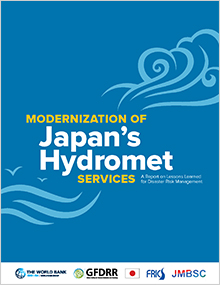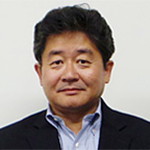 Yasusuke Tsukagoshi
Yasusuke Tsukagoshi
Special Representative, Japan, World Bank Group
Mr. Yasusuke Tsukagoshi became Special Representative, Japan on August 1, 2013. The Special Representative leads the institutional relationship with the Japanese Government, partners, and stakeholders; oversees the World Bank Tokyo Office; and has responsibility for coordinating and managing outreach and communications programs in Japan. Mr. Tsukagoshi, a Japanese national, has had a long career in Japan’s Ministry of Finance (MOF). Most recently, he served as Director General of Tokyo Customs following senior positions in the Ministry’s Customs and Tariff Bureau. Prior to the Customs’ positions, he had 17 years of experience in international finance and development. From 2008 to 2011 Mr. Tsukagoshi was Executive Director at the Inter-American Development Bank, representing Croatia, Japan, Korea, Portugal, Slovenia, and the United Kingdom, and from 1988 to 1991 he served as Executive Director at the African Development Bank, representing Argentina, Austria, Brazil, Japan, and Saudi Arabia.
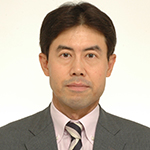 Akihiro Tsuchiya
Akihiro Tsuchiya
Director, Multilateral Development Banks Division, International Bureau, Ministry of Finance, Japan
Mr. Akihiro Tsuchiya is the Director, Multilateral Development Banks Division, International Bureau, Ministry of Finance, Japan, who has over 25 years of extensive experience in the Ministry. Mr. Tsuchiya joined the Ministry in 1990, and became the Deputy Director, MDBs issues, International Bureau in 2005. In 2006, he was appointed as the Deputy Director, Co-ordination Division, International Bureau. From 2008 to 2009, he served as the Director, Public Relations Office, until the appointment as the Director, Office of the Vice Minister for International Affairs in 2009. He was selected as the Director for Budget Analysis, Budget Bureau in 2010. He worked as the Secretary to the Minister for Comprehensive Reform of Social Security and Tax since 2011, and then became the Director, Wage and Pension for Public Employees Division, Budget Bureau, followed by the position of the Budget Examiner (Pension and Labor), Budget Bureau. From 2014, he served as the Director, G20/G7 and IMF issues, International Bureau until being appointed to the current position in 2015. Mr. Tsuchiya Holds a Bachelor of Law (LLB) from the University of Tokyo, and Master of Public Administration (MPA) from Princeton University.
Makoto Suwa
Senior Disaster Risk Management Specialist, Global Facility for Disaster Reduction and Recovery, World Bank
Dr. Makoto Suwa is the Hydromet and Disaster Risk Management Specialist leading and supporting a wide range of Global Facility for Disaster Reduction and Recovery (GFDRR) and World Bank activities and projects, aiming to strengthen weather, climate and hydrological services globally. Prior to joining GFDRR, Dr. Suwa worked for the World Meteorological Organization (WMO), both at its headquarters in Geneva and Regional Office for Eastern and Southern Africa in Nairobi, where he mainly developed and managed weather and climate services projects, supported capacity development activities and liaised with stakeholders. He also taught at the Kigali Institute of Science and Technology, and Lycée de Kigali in Rwanda, and briefly worked for the Office for Climate Change of Japan International Cooperation Agency (JICA) in Tokyo. Dr. Suwa holds a Ph.D. and a M.A. in Geosciences (Climate Science) from Princeton University, a Master of Environmental Management degree from Duke University in addition to an undergraduate degree from the University of Tokyo.
Mohammad Gul Hamidi
Director, Irrigation Restoration and Development Project (IRDP), Ministry of Energy and Water, Afghanistan
Trashi Namgyel
Engineer and Hydro-Met Officer, Department of Hydro Met Services, Ministry of Economic Affairs, Bhutan
Semunesh Golla
Director for Hydrology and Water Quality Directorate, Ministry of Water, Irrigation and Electricity, Ethiopia
Alex Martin Castellon Meyrat
Technical Advisor for Land Use Planning, Instituto Nicaragüense de Estudios Territoriales (INETER), Nicaragua
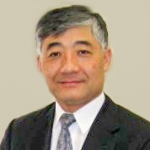 Toshio Koike
Toshio Koike
Professor, Department of Civil Engineering, School of Engineering, the University of Tokyo / Director, International Centre for Water Hazard and Risk Management (ICHARM)
Dr. Toshio Koike serves as Professor at the Department of Civil Engineering, School of Engineering, the University of Tokyo, as well as Director, International Centre for Water Hazard and Risk Management (ICHARM). He also works as Lead Scientist, CEOP projects of the World Climate Research Programme (WCRP); Co-Chair of the Architecture and Data Committee of the Group on Earth Observation (GEO), the Ministry of Education, Culture, Sports, Science and Technology (MEXT); and Chair of/Advisor to river management related committees under the Ministry of Land, Infrastructure, Transport and Tourism (MLIT). As hydrological and climate expert, Dr. Koike leads a number of national and international initiatives such as Asian Water Cycle Initiative (AWCI) with Global Earth Observation System of Systems (GEOSS), and Data Integration and Analysis System (DIAS). He has made breakthroughs on the water and climate disaster management through water cycle and climate science researches and their applications to water resources management, which can be classified into: establishment of satellite remote sensing, development of the data integration and information fusion system, and development of the hydrological down-scaling methods including satellite-based data assimilation. Some of the prominent awards he has recently won include: Group Achievement Award from National Aeronautics and Space Administration (NASA), and Awards for International Contribution and Academic Contribution Awards from Japan Society of Hydrology and Water Resources. Dr. Koike holds Bachelor, Master and Doctorate of Engineering from the University of Tokyo.
 James Newman
James Newman
Disaster Risk Management Specialist, Disaster Risk Management Hub, Tokyo, Global Facility for Disaster Reduction and Recovery, World Bank
Since joining the World Bank in 2013, Mr. James Newman has led Global Facility for Disaster Reduction and Recovery (GFDRR)’s overall work planning, and served as focal point for urban resilience and regional portfolios in South Asia and East Asia Pacific. He contributed to the development of the World Bank’s CityStrength Diagnostic and Medellin Collaboration on Urban Resilience. He has supported World Bank projects and technical assistance, including post-disaster assessments, in India, Nepal, South Africa, and Vietnam. Prior to GFDRR, he worked for the City of Baltimore, contributing to the city’s 10-Year Financial Plan, risk management, CitiStat performance management, and open data, and served as acting deputy procurement agent. He has also covered Latin American and Caribbean finance and insurance for a Chilean market intelligence firm. Studying economics and public policy, Mr. Newman has a Master’s from Georgetown and Universidad Alberto Hurtado in Santiago, Chile and undergraduate degree from Washington University in St. Louis. As an adjunct professor, he has taught urban management, public policy, and statistics at University of Baltimore’s Master’s in Public Administration (MPA) program.
(Listed in the order of presentation)
❖ Overview
❖ Our Activities
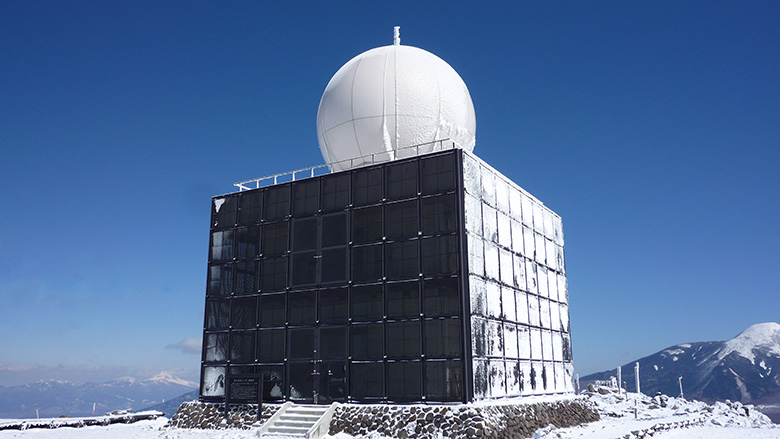
 Yasusuke Tsukagoshi
Yasusuke Tsukagoshi Akihiro Tsuchiya
Akihiro Tsuchiya Toshio Koike
Toshio Koike James Newman
James Newman
